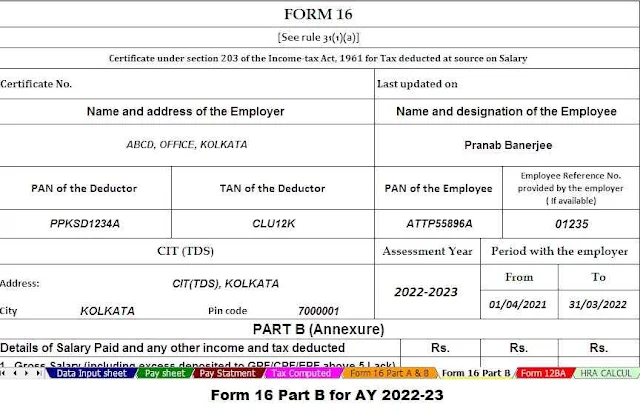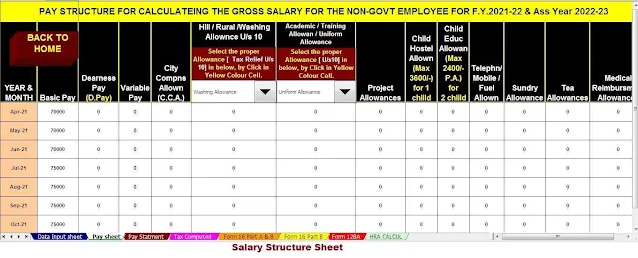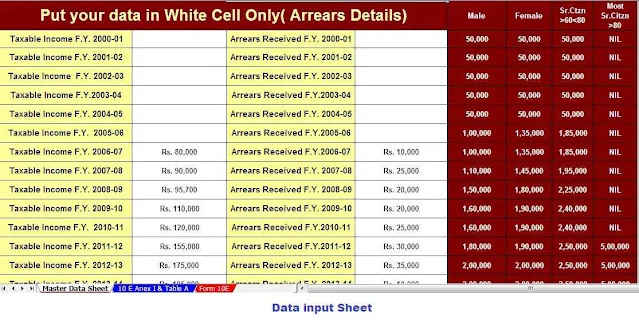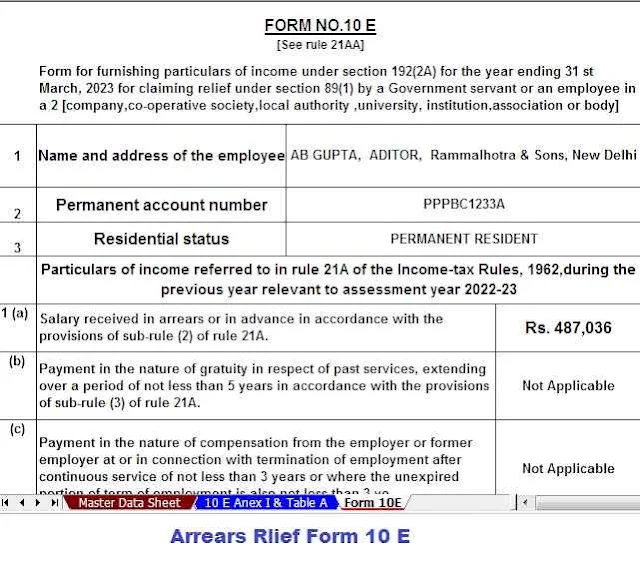Disability Tax Exemption U/s 80U| There
are certain sections in the income tax laws of
provide tax benefits to people if they or any of their family members suffer from a certain disability.
Section 80U offers tax credits if
an individual has a disability and Section 80DD offers tax credits if the
taxpayer's dependent family member has a disability. This article is about a
discussion of the tax credits available in section 80U.
Who Can Apply for a Section 80U
Deduction
A resident who has been certified
as disabled by a medical authority is eligible for a tax credit under section
80U. For the purposes of this section, a person with a disability of at least
40% as established by the health authorities is considered disabled.
Download and prepare at a time 50 Employees Form16 Part B for the Financial Year 2021-22
For the purposes of this section,
disability is defined as one of the following:
• Blindness
• Poor eyesight
• Healing from leprosy
• Hearing problem
• Motor disability
• Mental delay
• Mental disease
The section also defines a major
disability, which refers to a condition where the disability is 80% or more.
Severe disability also includes multiple disabilities, autism and cerebral
palsy.
Quantum deduction up to 80U
Deduct Rs. 75,000 is allowed for
people with disabilities, Rs. 1.25.000 deductions for people with severe disabilities.
Section 80U Requirements for
Requesting Deduction
No documentation other than a
certificate of disability issued by a recognized medical institution on Form10-IA is required. There is no need to submit invoices for expenses incurred in
connection with treatment or other similar expenses.
To apply under this section, you
must submit a medical certificate certifying your disability along with your
Section 139 tax return for the applicable. In the event that the certificate of
invalidity has expired, you can still request these deductions in the year the
certificate expires.
Download and prepare at a time 50 Employees
Form 16 Part A&B for the Financial Year 2021-22
However, a new certificate will be
required next year to receive the benefits. Certifications can be obtained from
medical authorities, which can be a neurologist with a doctorate of medicine
(MD) in neurology (in the case of children, a pediatric neurologist with an
equivalent degree) or a civil surgeon or medical director of a hospital public.
Note. If the invalidity is
temporary and requires re-evaluation after a certain period, the certificate
will start in the assessment year corresponding to the fiscal year in which it
was issued and will end in the assessment year corresponding to the fiscal year
in which the certificate expires.
Difference between 80U partition
and 80DD partition
Section 80DD provides tax credits
to family members and relatives of a taxpayer with a disability, while Section
80U provides tax credits to the taxpayer with a disability.
Section 80DD applies if a taxpayer pays a certain amount as an insurance premium for the care of a dependent person with a disability. Under section 80DD, the deduction limits are the same as in section 80U. Here dependent refers to siblings, parents, spouse, children, or a member of the same Hindu family as the taxpayer.






